Many California families have been struggling to meet their basic needs even before the pandemic due to historic under-investments in low-income communities of color. The pandemic, which has taken a toll on most families with young children in the state, has further exacerbated inequities in early care and education, healthcare, and other social supports. In the face of these inequalities and other obstacles which we outline below, parents continue to value early care and education and overwhelmingly support additional investments in public supports. As we reimagine and rebuild a support system that focuses on the whole child, we must listen to and act on the needs and preferences of parents with young children.
Parents have ongoing and intense concerns about the impact the pandemic will have on their family life and their child’s development and overall well-being. Seven in ten parents (69%) agree that the pandemic has significantly disrupted their home and family life – including 37% of parents who strongly agree (a five-point increase since April). Parents of young children also worry about their child’s social development, with nearly three-quarters (73%) agreeing they worry about their child’s ability to socialize with other children (45% strongly agree). 74% agree they are worried that their child’s education and development will suffer (40% strongly agree). Additionally, not only do 70% of parents worry about their and their family’s mental health as a result of the pandemic, but almost a third of parents (31%) agree they are worried about the impact issues like substance abuse and domestic violence will have on their family during this time (an eight-point increase since April).
Financial and job-related insecurity continue to top California parents’ concerns. Although a four-point decrease since April, unemployment and temporary loss of work are affecting nearly one in six (15%) parents of young children in California – particularly among parents in Northern California (20%), non-college parents (25%), Latinx families (23%), and low-income parents (35%). Even among employed parents, over a third (37%) say that they have had their pay or hours reduced as a result of the pandemic (a five-point increase since April). Finances are particularly concerning for low-income parents and parents of color: 59% of low-income parents and 40% of parents of color, including 43% of Latinx parents, say they feel uneasy about their personal finances over the next several months (compared to 33% among parents overall). This uneasiness continues into parents’ ability to afford basic expenses like food and housing: 59% percent of low-income parents and 40% of parents of color, including 42% of Latinx parents, say they are unsure or will not be able to afford these basic expenses (34% of parents are concerned about affording the basics overall).
As a result of these ongoing issues, over the last year parents have continued to compensate for a lack of steady income, fears of future financial instability, and food availability. Over a third of parents of young children in the state (36%) say they have skipped or reduced the size of their own or their child’s meals as a result of the pandemic, down just six points from the beginning of the pandemic. That number increases significantly among parents in San Diego (54%), low-income (46%), parents in Northern California (44%), and non-college parents (42%).
Health care remains a top priority for parents during the pandemic. Not only have 50% of unemployed parents enrolled in state-sponsored health insurance after losing their job, but over a third of parents overall (34%) have attempted to enroll in Medi-Cal during the pandemic. For many parents, this was not easy, with half (50%) citing that they had problems and/or issues when applying and enrolling in Medi-Cal; the most common being the need for a lot of follow-up (23%). A quarter of parents (26%) say they have not been able to access medical care using telehealth during the pandemic and another 32% say they have missed well-child health appointments for their child.
For many parents, returning their child to a care program has been challenging and many decided not to enroll their child in transitional kindergarten or kindergarten. Parents who have returned to their family- or center- based child care program cite a decrease in affordability and accessibility of quality care. Before the pandemic, 49% of parents say that the cost of child care was the largest barrier they experienced when looking for a child care provider. The pandemic has only made this worse – 41% of parents who have returned their child to a child care program say the costs have gone up and a quarter of parents (26%) are receiving financial assistance from the government to help cover the cost of their child’s program. While 19% of parents say that insufficient hours were a barrier to accessing child care prior to the pandemic, 50% of parents now say that their child care facility has since limited their hours – decreasing accessibility even more. And of the 40% of parents who had a child eligible to enroll in either TK or Kindergarten, over a third (35%) decided not to enroll. Most of the unenrolled children are not in an educational program and are instead being cared for by a parent or another caregiver (60%).
Parents are also worried about the health implications of their child returning to a care program. When it comes to child care programs and preschools, 99% of parents of young children say a setting that keeps their child safe and healthy is important – including 92% of parents who say it is very important. In addition, 78% of parents who did not enroll their child in TK/kindergarten did not feel comfortable with potentially exposing their family/network to the coronavirus. Parents feel that enhanced cleaning schedules (77%) and vaccinating teachers and program staff (71%) would also help alleviate their concerns.
Parents agree that California should be doing more to support infants, toddlers, and preschoolers, are eager for additional resources, and overwhelmingly support additional public investments in early care and education. We tested an extensive list of potential supports for parents and young children and found parents receptive to all of the options that were proposed. As governments at the federal, state, and local levels look to understand and mitigate the sizeable negative impact of the pandemic on California’s families, policymakers and other advocates should look to close the below gaps between the things that parents think would be helpful to them in navigating the crisis (in light blue below) and the things they currently have access to now (in dark blue below). This should extend beyond the current crisis as well: nearly all parents of young children (96%) say they support investing more public funds in expanding access to quality, affordable child care and preschool for families with young children in the state, including well over a majority (65%) who say they strongly support greater investment (a four-point increase since April); additionally, 90% of parents also say California should be doing more to ensure infants and toddlers in California are healthy and developmentally on track at birth and throughout childhood.
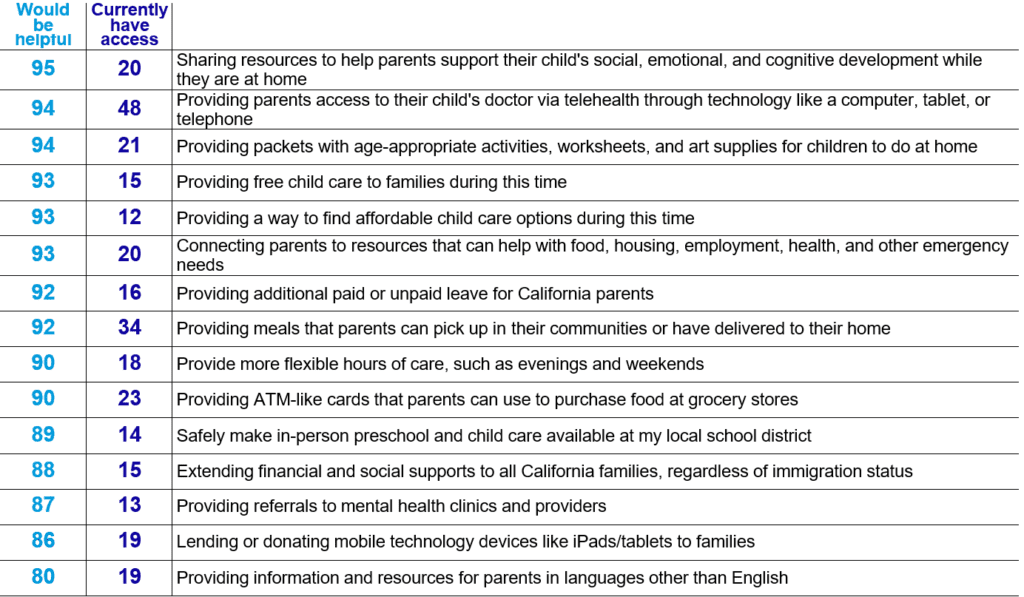
Parents also support additional policies and financial investments that can help provide relief and assistance to California families in both Governor Newsom’s 2021-2022 budget proposal…
- Nearly all parents say providing professional development for early educators is important: 97% of parents think it is important to prioritize professional development training for early educators in California’s schools – this includes well over a majority of parents (63%) who find it very
- More than nine in ten parents say providing additional child care subsidies for infants and toddlers from low-income families is important: 94% of parents think it is important to prioritize additional child care subsidies for low-income families in California as a way to help strengthen the early care and education system – including 66% of parents who say it’s very important.
- More than nine in ten parents also think improving facilities for transitional kindergarten and kindergarten is important: 94% of parents say that prioritizing improved facilities for young children in TK and kindergarten is also an important way to strengthen our early care and education system – this includes 62% of parents who say it is very important.
… and California’s recently developed Master Plan for Early Learning and Care:
- Nearly all parents say specialized trainings for educators to better serve children with disabilities is important: 97% of parents say it is important to prioritize specialized trainings for educators to better serve children with disabilities in California’s schools as part of the Master plan – this includes an overwhelming number of parents (71%) who say it is very important.
- More than nine in ten parents say prioritizing free high-quality preschool is important: 95% of parents say prioritizing free high-quality preschool for all four-year-olds in California would be important when implementing the Master Plan over the next ten years – this also includes 71% of parents who say it is very important.
- More than nine in ten parents say increased wages and professional development support for educators are important: 95% of parents say that the Master Plan should prioritize increased wages and professional development opportunities for educators of young children – including well over a majority (60%) who say it is very important.
- More than nine in ten parents say collecting data to improve quality of care is important: 94% of parents in California say collecting data to improve quality of care and better support children, families, and educators is important – including over a majority who say it is very important (57%).
About this poll:
The survey had a confidence interval of +/-4.0%. Confidence interval is higher among sub-groups. All interviews were conducted via web-based panel. Care has been taken to ensure the geographic and demographic divisions of parents of young children in California are properly represented.
This poll was released in partnership with:
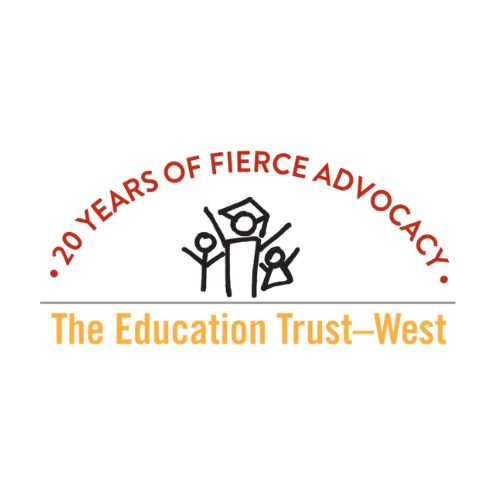

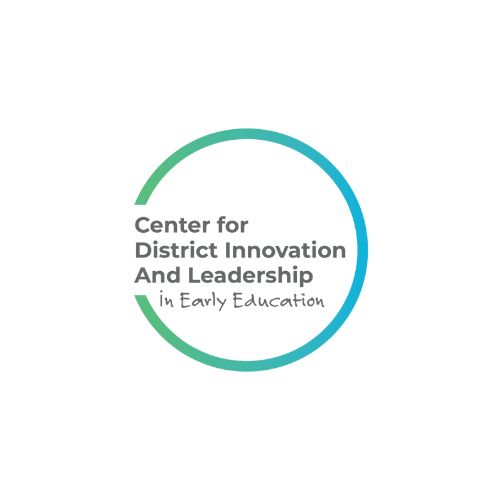
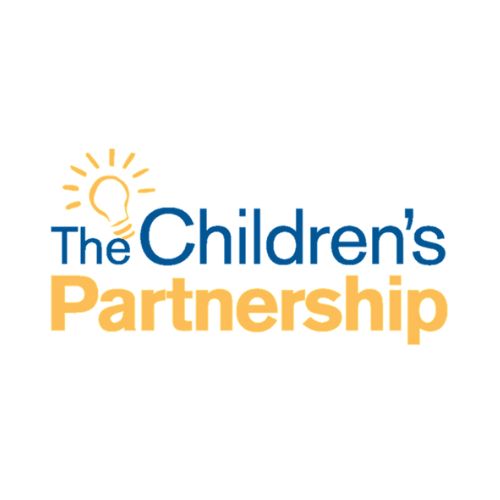
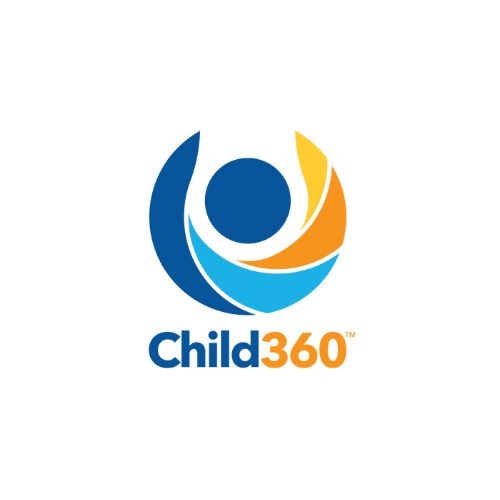
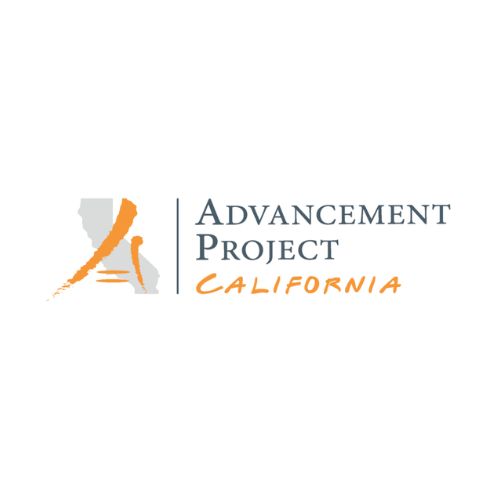
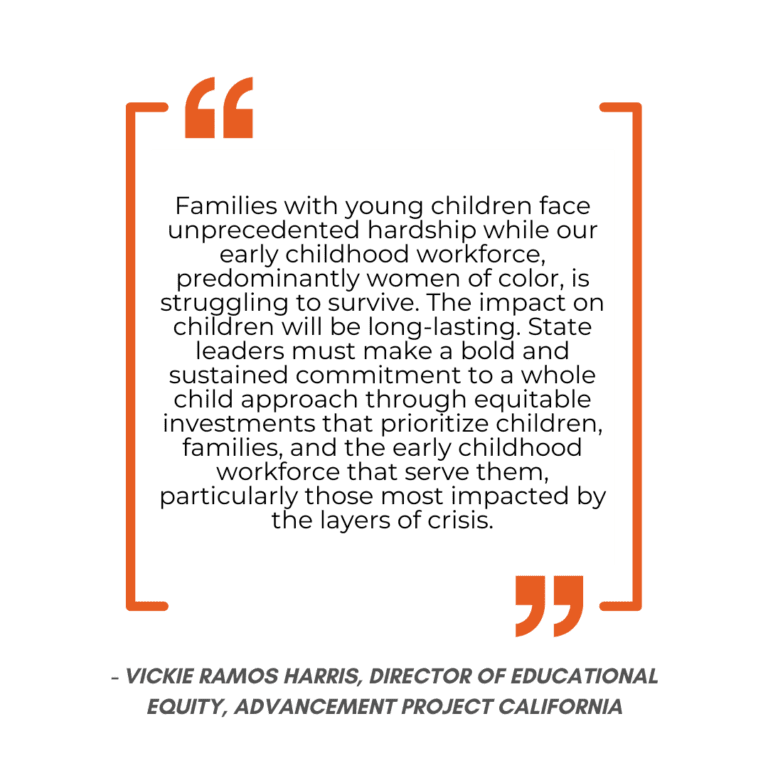
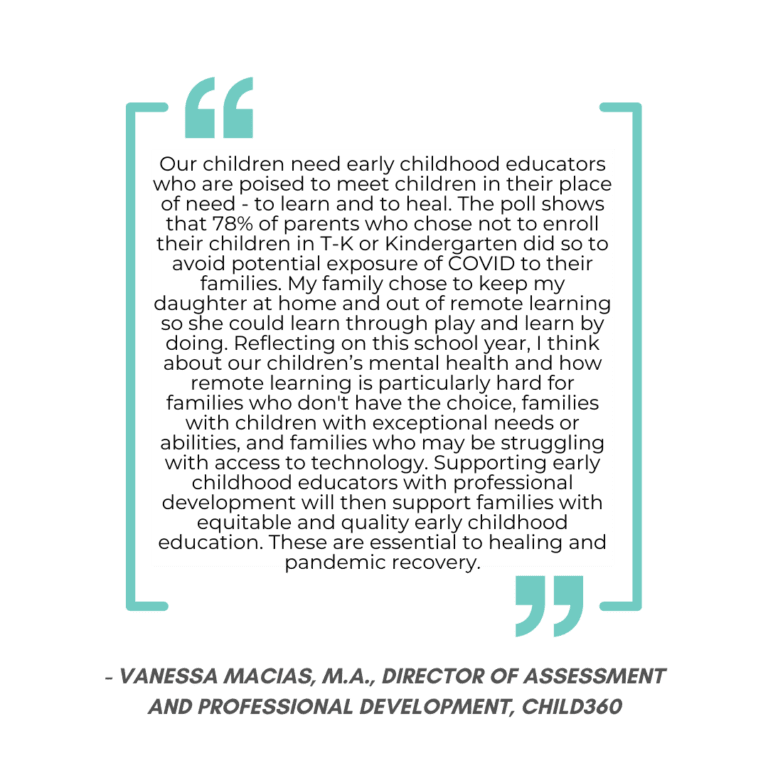
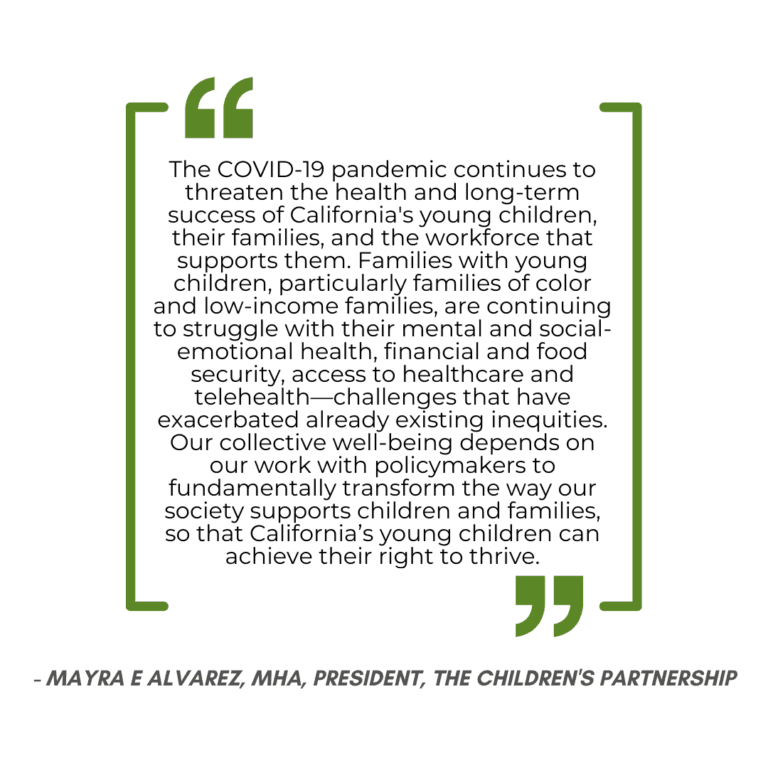
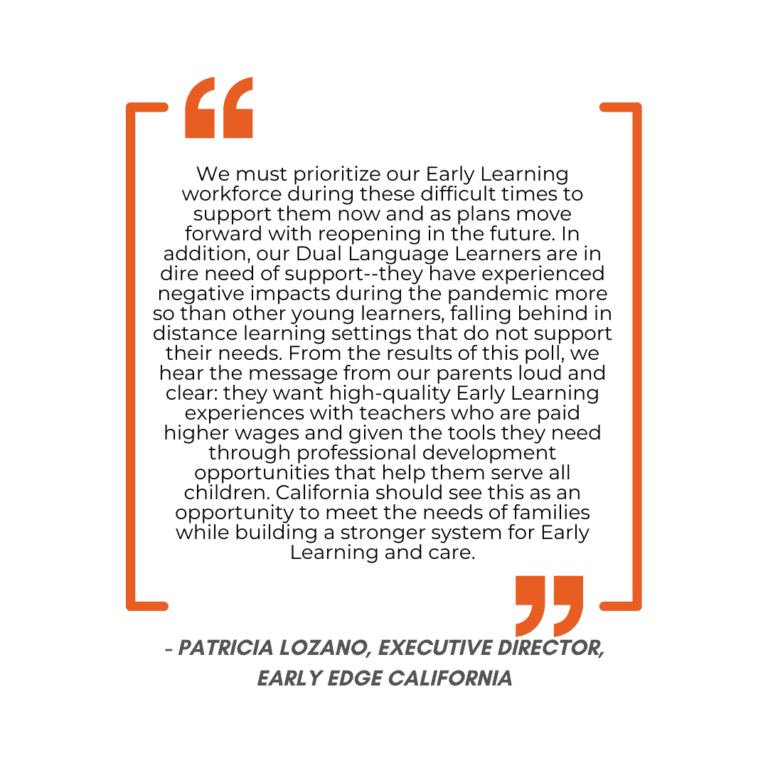
For more education equity-centered resources and responses, click here.




